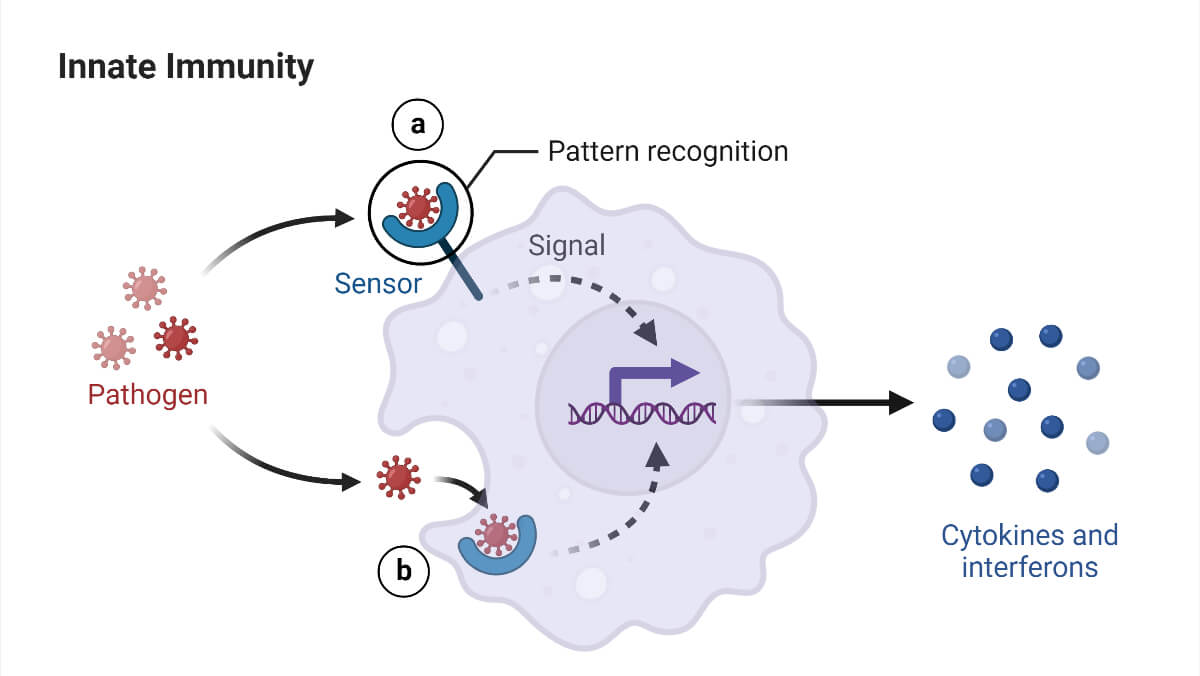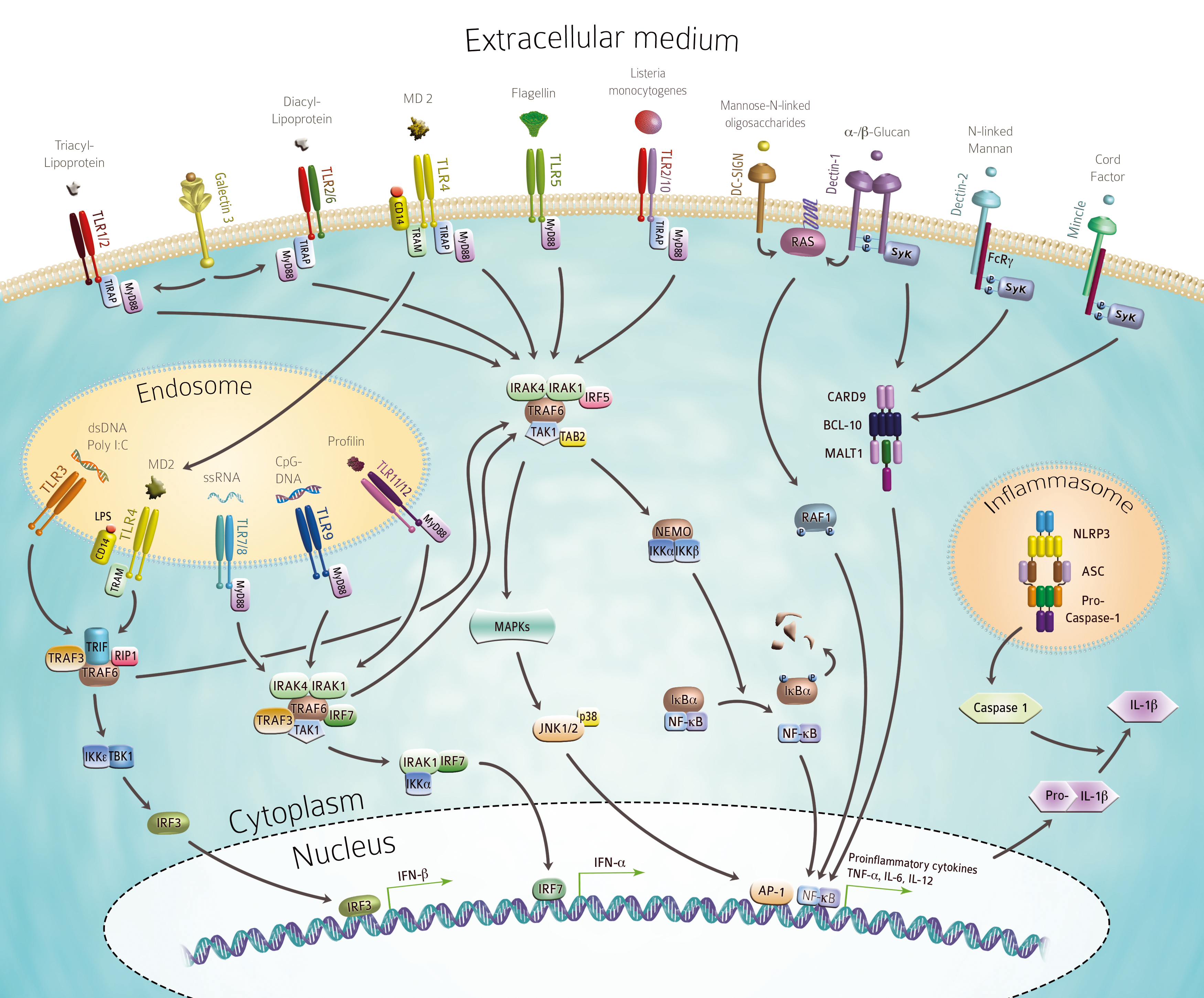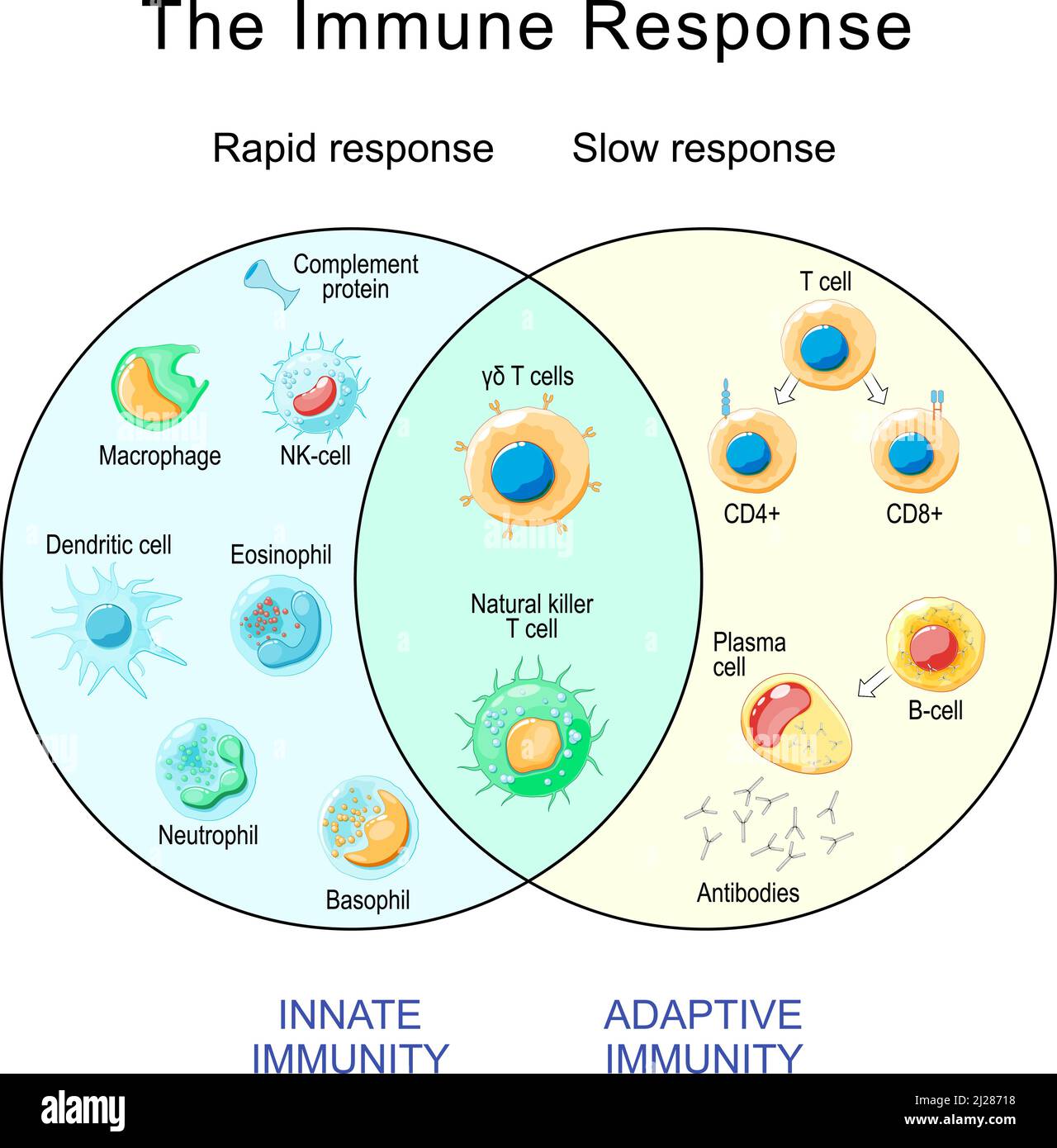Have you ever stopped to think about the incredible healing abilities built right into your own body? For a very long time, medicine has often looked outside us for cures, using things like pills or procedures. Yet, there's a growing appreciation for the powerful systems we're born with, and that's where the exciting area of innate biotherapeutics comes into view. This approach focuses on waking up and guiding your body's own protective responses to help it mend itself and stay well.
When we talk about something being "innate," we mean it's something present in an individual from birth, a quality or ability you simply have without needing to learn it. My text explains it well, saying an innate quality is "one that you were born with, not one you have learned." It's like an inborn characteristic, something existing as an inherent attribute. This means it's part of your natural makeup, something that just is, rather than something picked up through lessons or practice. So, in a way, it's about what makes you, you, right from the start.
This idea of something being naturally present from birth forms the very core of innate biotherapeutics. These treatments don't introduce completely foreign elements. Instead, they work with the body's existing, built-in protective mechanisms. They aim to boost or direct these natural systems, especially parts of our immune defenses, to fight off illness or repair damage. It's a bit like giving your body's own internal doctor a powerful new set of tools, or perhaps just helping it remember how truly capable it is, very much so.
Table of Contents
- What Are Innate Biotherapeutics?
- How Do These Natural Treatments Function?
- The Body's First Line of Defense
- Potential for a Healthier Tomorrow
- Advantages Over Traditional Methods
- Looking Ahead and Remaining Curious
- Frequently Asked Questions
What Are Innate Biotherapeutics?
Innate biotherapeutics represent a fresh way of thinking about medicine, actually. Instead of just treating symptoms or using outside agents to fight sickness, these therapies focus on supporting and directing the body's own natural protective systems. The word "innate," as my text points out, means "existing in one from birth" or "inherent in the character of something." So, these treatments work with what's already inside us, with our natural qualities and abilities, rather than something learned through education or experience. They recognize that our bodies have an incredible, built-in ability to heal and protect themselves, a sort of natural wisdom, you know?
Think of it this way: your body has a security system that's always on patrol. This system, part of your immune setup, is ready to respond to anything that seems off, whether it's a germ or a damaged cell. Innate biotherapeutics are designed to either strengthen this system or guide its actions more effectively. They might use components that mimic natural signals the body already understands, or they could involve specially prepared cells that naturally belong in the body. It's about working with the grain of our biology, rather than against it, and that's pretty neat.
This field is quite different from some other types of treatments you might hear about. It's not about giving you a new part or a simple chemical fix. Instead, it's about helping your body use its own tools better. For example, some approaches might involve specific types of immune cells that are part of your immediate defense, the ones that react quickly without needing to learn about a specific threat first. These cells are like the first responders of your body's protection squad, and innate biotherapeutics try to make those responders even better at their job, very much so.
Researchers are exploring many avenues within this area. Some are looking at ways to make these natural cells more active against certain problems, like some kinds of unwanted growths. Others are studying how to calm down an overactive immune response that might be causing trouble, such as in certain long-term health issues. The goal is always to restore a natural balance or to give the body a gentle nudge in the right direction, using its own inherent strengths. It's a truly exciting prospect, you know, for future health.
How Do These Natural Treatments Function?
The way innate biotherapeutics function is pretty clever, actually. They tap into what's called the "innate immune system," which is the part of your body's defense that reacts immediately to threats. Unlike the "adaptive" immune system, which learns about specific invaders over time, the innate system is always ready to go, like a general alarm system. My text says an innate quality is "one which a person is born with," so this system is always there, ready for action. These treatments often involve using or modifying natural components that are part of this immediate response, helping them do their job more effectively, you know?
One common way these therapies work is by using certain types of immune cells that are naturally present in the body. For instance, natural killer (NK) cells are a kind of white blood cell that can spot and destroy cells that are infected or look abnormal, without needing prior exposure to them. They have an innate sense of what's right and wrong within the body, so to speak. Biotherapeutics might involve taking these NK cells from a person, making them stronger or more numerous in a lab, and then putting them back. This gives the body a more powerful, ready-to-fight army, so it's almost like that.
Another approach involves using molecules that naturally signal to the innate immune system. These molecules can act like a call to action, telling the body's defenses to wake up and get to work. For example, some therapies might use certain proteins or bits of genetic material that, when introduced, alert the innate system to a problem. This can trigger a cascade of protective responses, helping the body clear out issues on its own. It's a very precise way to stimulate the body's natural defenses, rather than a broad, sweeping action, you know.
The beauty of this method is that it often leads to a more targeted and natural response. Because it's using the body's own mechanisms, there can be fewer unwanted effects compared to some traditional treatments. It's about fine-tuning what's already there, helping the body help itself. This could mean a more lasting effect too, as the body learns to better manage its own health challenges. It's a subtle yet powerful shift in how we approach wellness, very much so.
The Body's First Line of Defense
The innate immune system is, in a way, your body's original and most immediate shield against harm. It's the part of your body's protective setup that's always on guard, ready to act the moment something unwelcome shows up. My text describes "innate" as "existing in one from birth," which perfectly describes this system. It doesn't need to learn about a specific threat; it just recognizes general danger signals and springs into action. This makes it incredibly fast and efficient, like a quick-response team that's always on standby, you know.
This system includes various components, like physical barriers such as your skin and the linings of your internal passages. But it also involves special cells, such as those natural killer cells we mentioned, and macrophages, which are like big eaters that gobble up invaders and debris. There are also dendritic cells, which are important for showing threats to the adaptive immune system, helping it learn. These elements work together to create a robust, initial defense, pretty much.
When an innate biotherapeutic comes into play, it often aims to give these first responders a boost or a clearer mission. For example, if the body is struggling to fight off a persistent problem, a therapy might introduce more active natural killer cells, or perhaps substances that make the existing ones more effective at finding and neutralizing problematic cells. It's about enhancing the body's inherent ability to speak, as my text puts it, in its own defense language, you know.
This focus on the innate system is quite exciting because it offers a broad spectrum of potential uses. Since this system is not specific to one type of germ or one kind of abnormal cell, therapies targeting it could have wide applications. They might help with different kinds of infections, various long-term conditions, and even in supporting the body's recovery after injury. It's a very versatile approach, tapping into a fundamental part of our biology, so it's almost like that.
Potential for a Healthier Tomorrow
The potential uses for innate biotherapeutics are truly vast and quite promising for a healthier future. Because these therapies work with the body's fundamental, inborn protective systems, they could offer new ways to address many different health challenges. My text mentions that an innate quality is "existing as an inherent attribute," and this inherent nature of our defenses means these treatments could apply across a wide range of issues, rather than just one specific ailment, very much so.
One major area where these therapies show great promise is in fighting serious illnesses, especially those that are hard to treat with current methods. By empowering the body's natural killer cells or other innate immune components, researchers hope to give people a stronger internal defense. This could mean better outcomes and perhaps even fewer unwanted effects compared to some very strong treatments available today. It's about making the body's own fight more effective, you know.
Beyond fighting off serious illnesses, innate biotherapeutics might also play a role in managing long-term conditions where the immune system is somehow out of balance. If the body's defenses are mistakenly attacking its own healthy tissues, these therapies could potentially help calm down that overreaction, restoring a more natural state. Or, if the immune system is too weak to protect against common threats, these treatments could give it a much-needed push. It's about finding that sweet spot of proper immune function, pretty much.
The field is also looking at how these therapies could help with infections, particularly those that are becoming resistant to traditional medicines. By boosting the body's immediate response, innate biotherapeutics could offer a new line of defense, helping to clear out tricky germs before they cause too much trouble. It's a fascinating area of study, with so much possibility for improving how we stay well and recover from sickness. The possibilities are really quite extensive, and that's something to think about.
Advantages Over Traditional Methods
When we look at innate biotherapeutics, there are some pretty compelling advantages they might hold over more traditional ways of handling health problems. One of the biggest benefits is that these treatments work by using your body's own tools and processes. My text points out that an innate quality is "one that you were born with," so these therapies are tapping into something that's already a natural part of you. This can often lead to a more harmonious interaction with your body, so it's almost like that.
Because they leverage the body's natural systems, innate biotherapeutics can sometimes offer a more targeted and precise approach. Instead of a broad-stroke medication that affects many parts of the body, these therapies aim to direct specific components of your immune system to where they are needed most. This might mean fewer unwanted effects or a more efficient response, as the body is already familiar with the types of signals being sent. It's a bit like guiding a natural process rather than forcing an artificial one, you know.
Another important aspect is the potential for long-lasting effects. When the body's own protective mechanisms are strengthened or re-educated, they might continue to function better on their own, even after the treatment has finished. This could mean that people experience sustained improvements in their health, rather than needing continuous medication to keep symptoms at bay. It's about empowering the body to maintain its own well-being over time, which is a pretty powerful idea, very much so.
Furthermore, these therapies often represent a new way to tackle problems that have been difficult to address with existing treatments. For conditions where traditional medicines have reached their limits, innate biotherapeutics offer a fresh perspective and new hope. They open up possibilities for people who might not have had many options before, by using the inherent ability to speak that our bodies possess, as my text describes. This innovative approach is truly pushing the boundaries of what's possible in medicine, and that's something to consider.
Looking Ahead and Remaining Curious
The field of innate biotherapeutics is still relatively young, but it's growing quickly, and that's something to be quite excited about. Researchers are constantly learning more about how our body's natural defenses work and how we can best support them. My text reminds us that "innate" means "existing in one from birth," so this research is about truly understanding and working with our fundamental biological makeup. It's a journey into the very core of our health, you know, and there's so much more to discover.
As this area develops, we can expect to see even more precise and effective treatments emerge. Scientists are refining ways to target specific cells and pathways within the innate immune system, making these therapies even more powerful and tailored. This could lead to breakthroughs for conditions that currently have limited treatment options. It's a very dynamic space, with new findings coming out all the time, pretty much.
For those interested in staying informed, keeping an eye on scientific publications and reputable health news sources is a good idea. This area of medicine is changing rapidly, and new information is always becoming available. Understanding how your body's natural abilities can be supported is a valuable thing to know, and it empowers you to be more involved in your own health journey. You can learn more about innovative health solutions on our site, and we also have information on immune system support that might interest you.
Ultimately, innate biotherapeutics represent a shift towards a more collaborative approach with our own bodies. Instead of just fighting sickness from the outside, we're learning to work with the incredible, inborn healing power that each of us possesses. It's a promising path towards a healthier future, where our own natural abilities play an even bigger role in keeping us well. This perspective is truly inspiring, and it's something to really think about.
Frequently Asked Questions
What exactly are innate biotherapeutics?
Innate biotherapeutics are treatments that use or boost the body's natural, inborn defense systems, especially the immediate part of your immune response. They work with qualities you have from birth, helping your body fight off problems on its own. It's about leveraging what's already there, you know, in your system.
How do these treatments use the body's natural defenses?
These treatments often involve cells like natural killer cells, which are part of your body's immediate response to threats. They might also use natural signaling molecules. The idea is to make these natural defenses stronger or more focused, helping them recognize and deal with issues effectively, very much so.
Are innate biotherapeutics the next big thing in medicine?
Many experts see innate biotherapeutics as a very promising area with huge potential. They offer new ways to approach difficult health challenges by working with the body's own healing power. While still developing, they could certainly become a major part of future medical care, pretty much.



